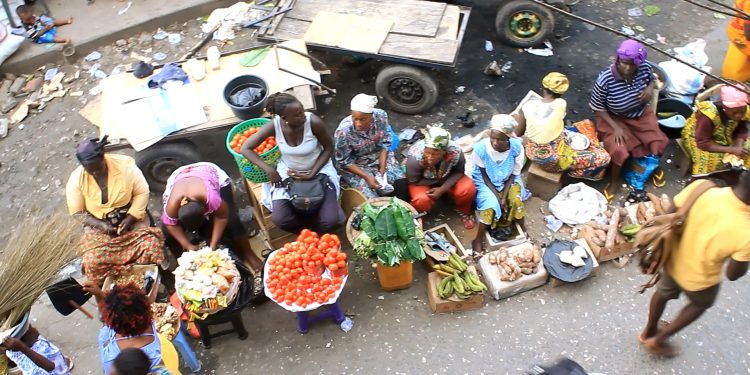Ghana’s monthly wage averaged GH¢2,922 in 2023 – Report
“While the Ghanaian government implemented policies to mitigate cost-of-living pressures, these interventions were ineffective in reaching and supporting the informal workforce.
- Advertisement -
Ghana’s average monthly wage was pegged at GH¢2,922, according to a cost of living crisis report put together by Women in Informal Employment: Globalizing and Organizing (WIEGO).
Titled ‘Navigating Inflation: Impacts of the Cost-of-Living Crisis on Workers in Informal Employment in Accra, Ghana,’ the report indicated that despite the GH¢2,922 monthly average, workers in the informal sector earn less with head porters, popularly known as Kayayeis, earning GH¢500 monthly.
- Advertisement -
“A monthly living wage in Ghana averaged GH¢ 2,922 in 2023 (Global Living Wage Coalition, 2023:5). This is the living wage required by workers in peri-urban areas to be able to afford a basic but decent living standard. A typical worker in the focus groups was working six days per week and earning GH¢ 1,500 monthly.
- Advertisement -
“Kayayei were the lowest-earning group (a typical worker earning GH¢ 500 monthly), followed by street vendors (GH¢ 1,250), waste pickers ( GH¢ 1,300), and market traders ( GH¢ 2,200). The great majority of interviewed workers were also the primary earners in their households.
- Advertisement -
The report focused on kayayei (head porters), market traders, street vendors, and waste pickers and added that high inflationary pressures made the monthly wage earned by the focused groups interviewed, insufficient and failed to provide any relief to workers in informal employment.
“While the Ghanaian government implemented policies to mitigate cost-of-living pressures, these interventions were ineffective in reaching and supporting the informal workforce. In mid-2022, when inflation hit a two-decade high, the government approved a 15 per cent Cost-of-Living Allowance. The measure, which expired in December 2022, was limited to public sector workers.
“The 10 per cent increase to the minimum wage in January 2023 also proved insufficient to counter the rapid inflation and failed to provide any relief to workers in informal employment, who remain outside its scope (World Bank, 2023).”
Source: Citinewsroom
- Advertisement -


